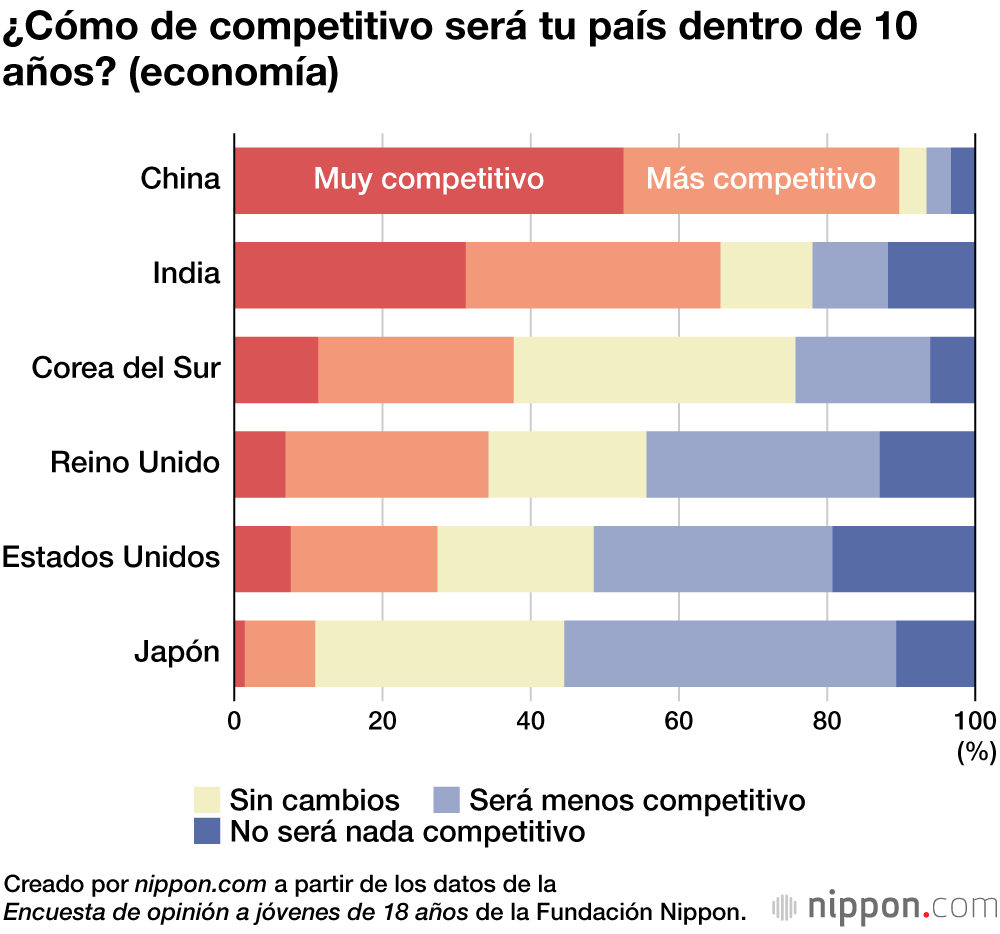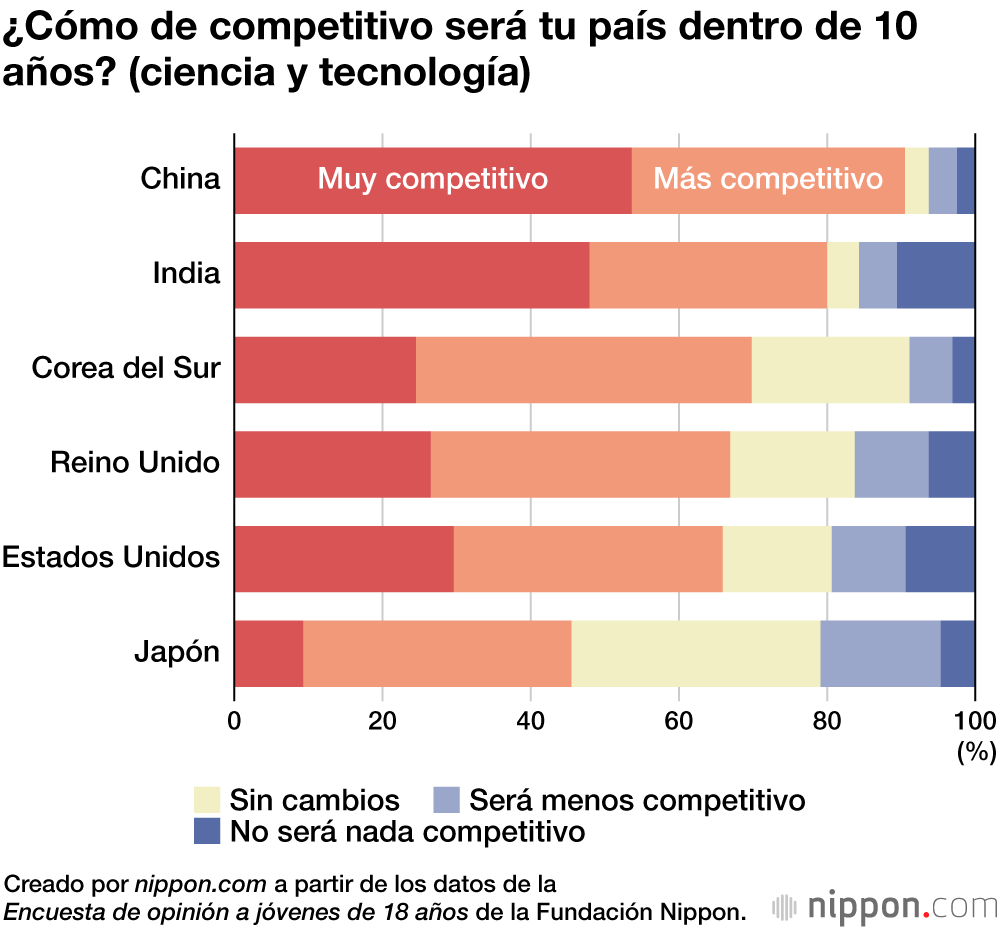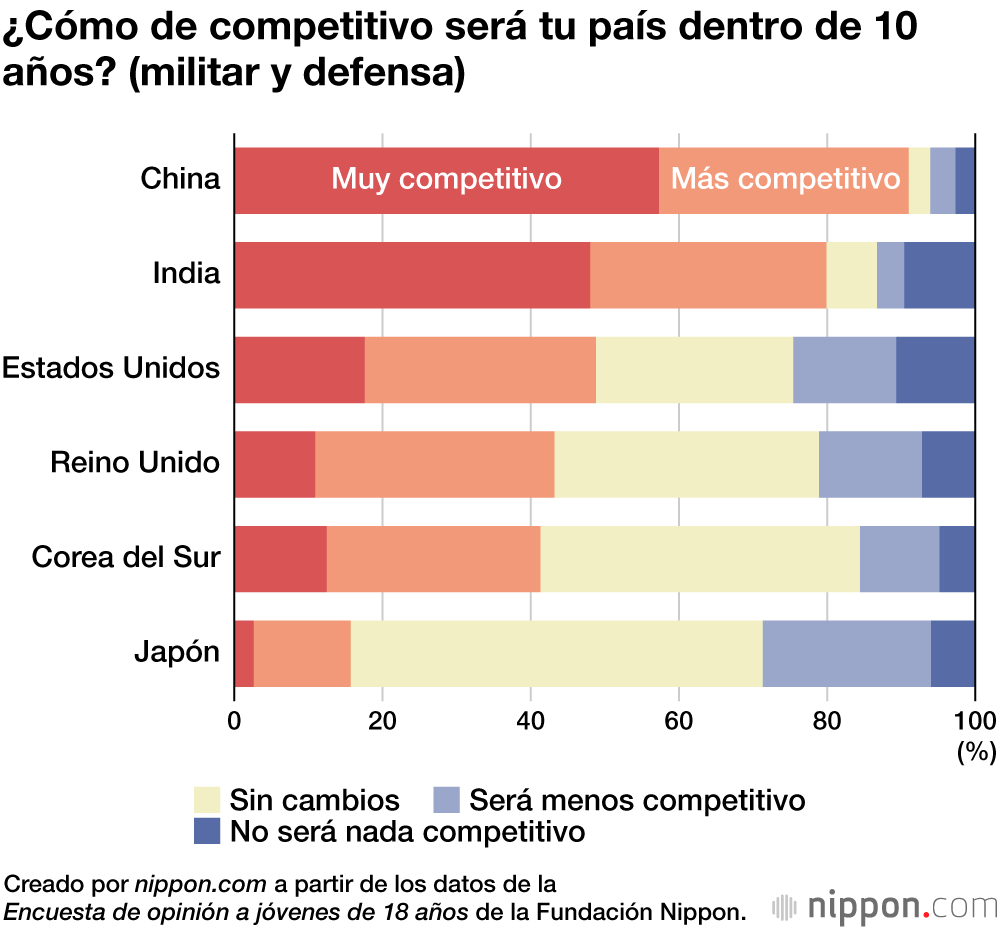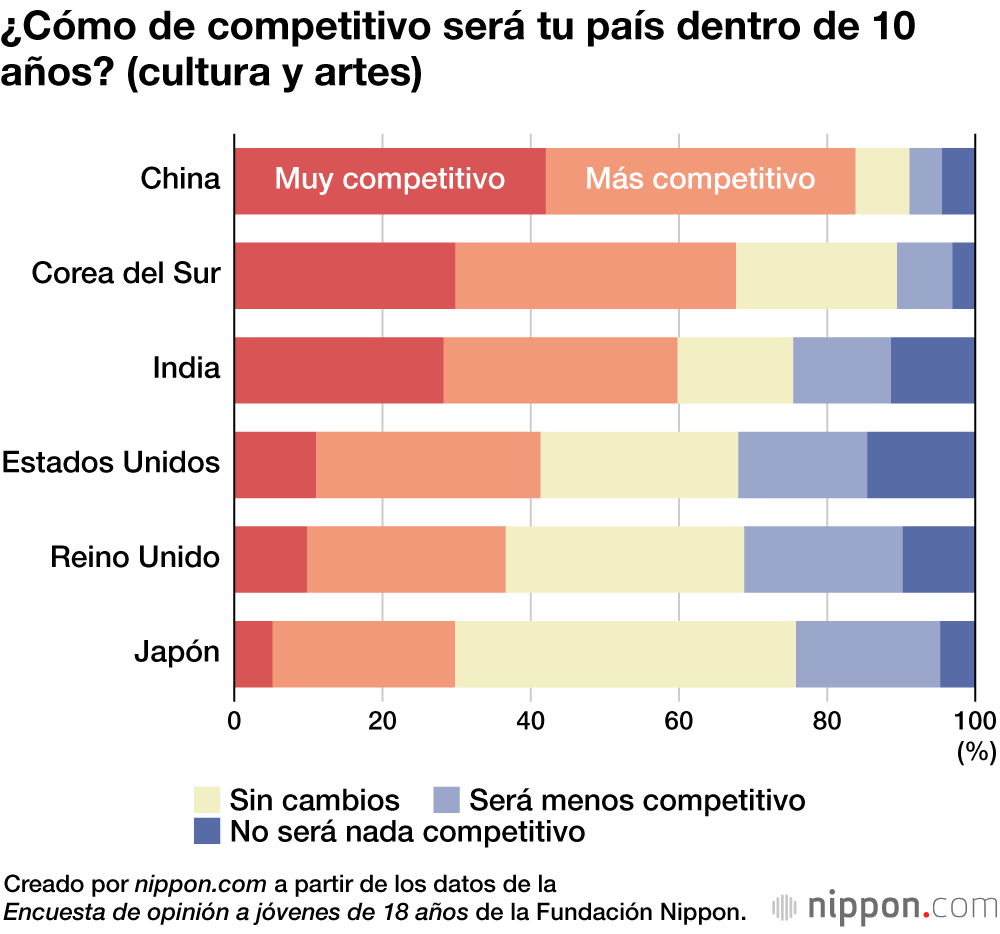The Nippon Foundation surveyed 6,000 18-year-olds in six countries around the world. The results reveal that young Japanese feel suffocated and have little hope for the future despite living in a country that is prosperous, safe, clean, and highly educated.
The Nippon Foundation does Opinion survey for 18 year olds among 6,000 young people from Japan, the United States, the United Kingdom, China, South Korea and India. The results reveal that only 13.9% of young Japanese, the lowest number of the six countries, believe that their country’s future will be better. In contrast, 35.1% of them, the highest percentage among the countries, believe that the situation will worsen.
In contrast, 95.7% of young Chinese have a positive view of the future of their country and only 1.2% believe that it will be worse.
It is also becoming clear that some young people in the UK and the US, both members of the Group of Seven, have bright prospects for the future. This is a trend shared by developed countries, but the figure for Japan is very low. Despite living in the world’s third-largest economy, young Japanese seem to feel stagnant and hopeless.
Regarding the competitiveness that the country will have in the next ten years in the field of “economics”, “science and technology”, in the field of “military and defense”, and in the field of “culture and arts”, the number of young Japanese who expressed their opinion that Japan will be very competitive or more competitive is the lowest in all areas.
The Japanese economy has been characterized by its strength, however, given that the country has entered a period of demographic decline and slow growth, only 1.4% and 9.5% of young people think that Japan will be highly competitive and competitive. On the other hand, 45.5% believe that the science and technology sector will be highly or more competitive.
Because sleevesthat anime and pop music, which is Japan’s strategic export item, was pushed into the background by the emergence of the so-called “Korean wave” and “Chinese wave”, only 29.5% thought that culture and art would be highly or more competitive.
The survey was conducted between late January and early February 2022 via the internet and was followed by a thousand young people aged between 17 and 19 years from each country.
Header photo: PIXTA.











